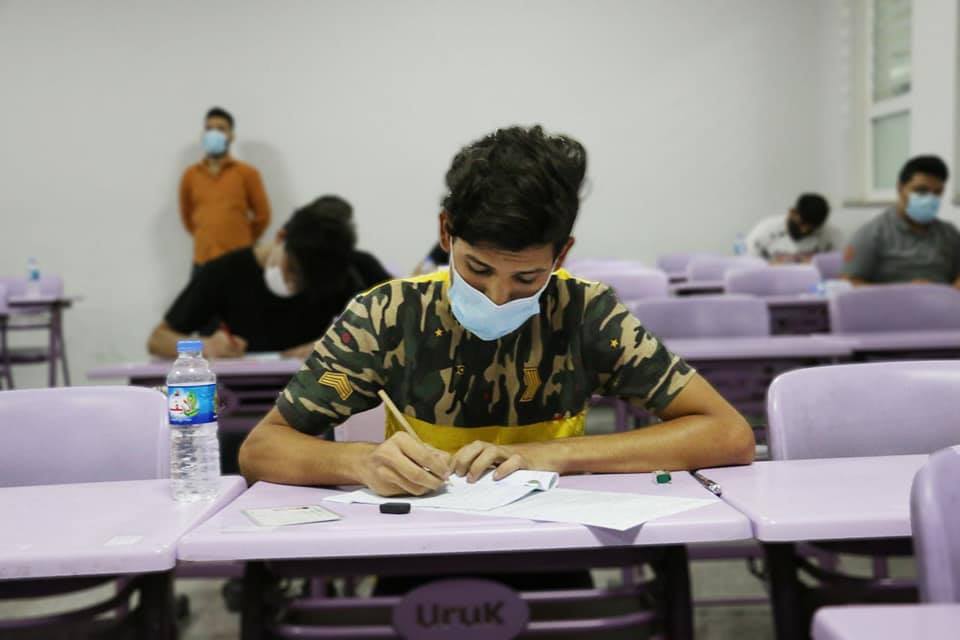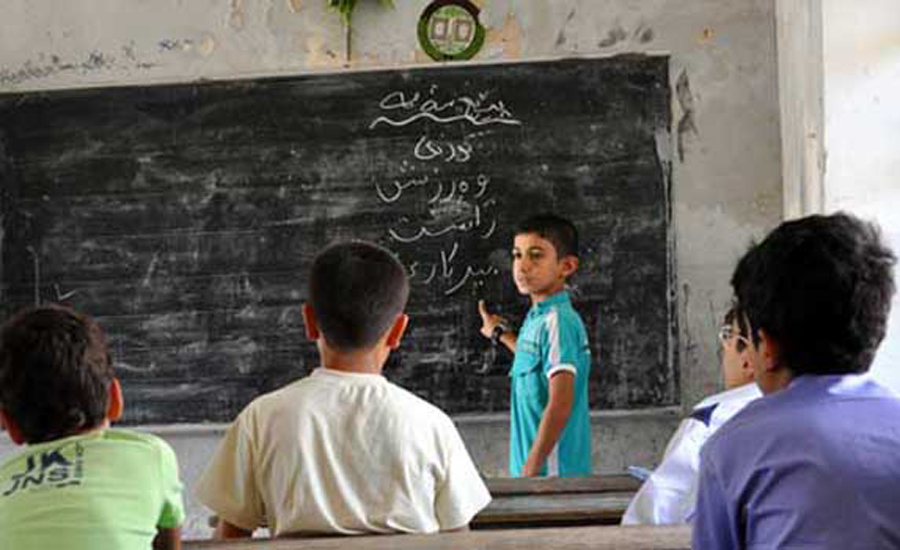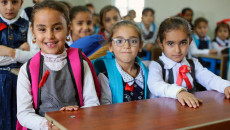The process of teaching in Kurdish, the mother tongue of tens of thousands of students, in the multi-ethnic district of Khanaqin, north of Baghdad, has turned into a headache for the pupils and their parents as education sector alike other sectors is suffering in Khanaqin and most of the disputed territories between Baghdad and Erbil.
The Iraqi ministry of education has a directorate for education in the town and its strategy is toward funding schools teaching in Arabic, the official language of Iraq. Even the schools it was sponsoring to teach in Kurdish follow curriculum different compared to schools teaching in Kurdish yet funded by the Kurdistan Regional Government KRG which has its own directorate in Khanaqin.
The closure of Kurdish schools funded by Baghdad puts more pressure on schools teaching in Kurdish and funded by Erbil which is economically suffering following the tensions with Baghdad over oil marketing, corruption and impact of Covid-19 pandemic.
The parents who are sending their kids from Baghdad-funded schools to Erbil-funded schools are saying the different curriculums confused the pupils, a matter urged many others to send pupils to schools teaching curriculums in Arabic in order to have better chances for higher education and state employment.
Aland Haidar has attended a school administered by Iraqi ministry of education which was teaching in Kurdish up to class nine and stop since Baghdad closed preparatory schools in Kurdish from class 10-12 in the town.
Haidar has no choice except to join a Kurdish school funded by the KRG.
“The teaching system by Kurdistan is different in terms of curriculum and tests which is hard for us because we are not familiar with it.”
“Some of my friends were forced to quit their education.”
Ali Hussein, director of Khanaqin education under Iraqi ministry, said the ministry of education in Baghdad has decided to shut high schools in Kurdish due to the low number of students.
Currently, less than 2,000 pupils attend 25 Kurdish primary schools, class 1-6, run by Baghdad in 25 schools while there are only two schools for 30 pupils of secondary schools, class 7-9.
Hussein said those who quit their schools head to Kurdish schools of KRG in Khanaqin.
“The number of pupils in Kurdish schools are minimizing because some families think there is no future in Kurdish education and convert to Arabic education,” he added.
Kurdish families in Khanaqin and the disputed territories are unpleased for kids to quit education in their mother language, a dream came true in 2003 following the ousting of Saddam regime, and head into schools teaching in Arabic.
Khanaqin, on the border with Iran, is part of the disputed territories between Baghdad and Erbil which runs through the oil rich city of Kirkuk up to Shingal west of Ninewa on the border with Syria.
In 1970s, the Bath party led by Saddam Hussein has moved part of the Kurdish population from disputed territories to the north of Iraq and replaced them with Arab settlers.
Following ousting Saddam regime in 2003, the Kurds took control over part of the disputed territories and marched forward in 2017 when ISIS took over large swathes of Iraq forcing Iraqi forces to desert some territories where the Kurdish Peshemrga replaced it.
After the declaration of victory over ISIS in 2017, and a referendum for independence by the Kurds in Kurdistan region and parts of the disputed territories in September 2017, the ISF took back control in the disputed territories in October 2017.

Baghdad, September 2020- Final exams of class 12. Media of Iraqi ministry of education
Figures By syndicate of teachers, Khanaqin branch, show that 90% of schools in Khanaqin were teaching in Kurdish following toppling Saddam regime back in 2003.
Currently, there are 30,000 pupils in 45 Arabic schools, Hussein told KirkukNow.
In the Kurdish teaching schools, there 5,225 pupils in 34 primary, secondary and preparatory schools.
Hassan Mohammed, director general of Khanaqin education under the KRG, said they are under pressure as pupils flow from Baghdad-funded schools.
“We face lack of teaching staff and buildings for schools as they turn Kurdish schools in Arabic and keep the teaching staff while pupils come to us.”
Following the events of October 16th 2017 when Iraqi forces regained control in the disputed territories including Khanaqin which were all run by the KRG, Baghdad has shut about 18 Kurdish teaching schools in Khanaqin, said Mohammed Shakir, head of Khanaqin branch for syndicate of teachers.
“The pupils their shift to Arabic-teaching schools.”
Back in 2003, a committee in Khanaqin education of the KRG has decided all Kurd families have to send children to Kurdish schools up to 2009 and most Arabic schools were shut.
“Once the committee has stopped, the number of students of Arabic schools was going up gradually and Kurdish schools were deserted,” Shakir recalls.
All Kurd families had to send children to Kurdish schools up to 2009
Up to 2009, there was only one directorate of education in Khanaqin assigned by Baghdad. Later, it has decided to suspended Kurdish education in Khanaqin.
“Most of the pupils were obliged to leave those schools for the ones funded by the KRG,” Shakir added.
Iraq’s education infrastructure is in ruins in many parts of the country; one in every two schools is damaged and needs rehabilitation, says a report by UNICEF about education in Iraq.
A number of schools operate in multiple shifts in an attempt to accommodate as many students as possible, squeezing the little learning time that children have.
The KRG has opened special directorates for Kurdish education in the disputed territories of Kirkuk, Nineveh and Diyala which alike its Kurdish counterparts in Iraqi Kurdistan Region IKR suffer lack of budget for accurate monthly payroll and shortage of staff, curriculums and utilities.
Shirin Mohammed, is mother of three kids. She is one of the Kurdish parents whom prefer Arabic education.
“I have registered my two little kids in Arabic school and changed the school of my son who passed class five to Arabic school as well since there they can learn Arabic and have a better future.”
Her son is in class one while her daughter is in class three. Hundreds of parents followed Shirin which reduced Kurdish schools from 331 in 2009 into only 61.
A seminar about education in Khanaqin in Mis September found out it is a plan by Bgahdad.
“Pupils and parents do not want education in Kurdish and Baghdad shut high schools in Khanaqin and its suburbs,” said Sarbast Birzo, organizer of the debate.
“Kurdish education is about to end in the region. We want to keep it and sent a letter to KRG ministry of education in this regard to find a solution for this crisis.”






